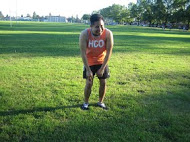Overview Of Dehydration
- Dehydration takes place when your body displaces too much liquid. This can occur when you don’t consume water or misplace large quantities of fluid through diarrhea, nausea, perspiring, or exercise.
- Not consuming sufficient liquids can cause muscle spasms. You might feel weak. You might go into shock, which is a severe medical condition.
Dehydration In Infants And Kids

Infants and small kids have an increased possibility of becoming dehydrated because:
- A larger part of their body consists of water.
- Kids have a high metabolic ratio, which means their body consumes more water.
- A child’s kidneys do not support water compared to an adult’s.
- Kids will not eat or drink when they are feeling ill.
- They are reliant on their parents to give them food and liquids.
Dehydration In Adults
Older adults have an increased possibility of getting dehydrated because they might:
- Not drink as they do not feel as thirsty as people who are younger.
- Have kidneys that do not function very well.
- Decide not to drink because of bladder problems.
- Have physical difficulties or an illness which makes it: difficult to drink or pick up a glass, too sore to get up out the chair, painful to go to the restroom, difficult to talk or converse with somebody about their symptoms.
- Not have sufficient cash to adequately feed themselves.
Observe infants, small kids, and older adults carefully for early signs of dehydration anytime they have infections which can result in high fever, nausea, or diarrhea. These following are early symptoms of dehydration:
- The eyes and mouth might be drier than normal.
- The urine might be less than normal.
- The individual might feel irritable, exhausted, or dizzy.
Examine your symptoms to see if and when you must see a GP.
Related Video On Dehydration
